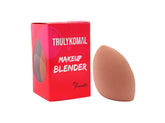6 COMMON MISLEADING MYTHS ABOUT HAIR CARE
When it comes to hair care, there are many suggestions, care traditions and myths that most of us are tempted to follow! The question is which myth to follow and which not to follow!
We strongly believe that it is best to take hair care decisions based on research and studies, rather than random advices and myths.
We are sharing some common myths that you should think twice before following!
1. The more the product, the better!
It is a very common belief that the more the product is applied, the better your hair will be. We beg to disagree! Although good hair care products might be infused in healthy nutrients that may benefit your hair in several ways, they also contain chemicals and ingredients that might harm your hair, especially in case of overuse!
Ideally, Shampoo and Conditioning should be done 2-3 times a week, depending on the type of hair you have. This routine should be enough to thoroughly clean and nourish the hair.
The right way to do it is to apply a modest amount of product and lather and rinse. Too much product might damage the hair, cause breakage, and also dehydrate the scalp.
While washing, make sure to rinse and massage the scalp properly.
2. Dry shampoo is just as good as regular shampoo!
We have recently seen an increase in Research and development of hair care products. This has led to many new product innovations, one of the most popular products being, the Dry Shampoo!
Use of dry shampoo has gained recent popularity amongst socialites and working women.
Although it has made its way very quickly to the closets of many, the dry shampoo can never replace the normal shampoo. This is because although this product sucks out excess oil from your hair and make your hair look freshly washed, it fails to perform the main function that a shampoo does, which is to clean and condition the hair.
For clean hair and scalp, you must use regular shampoo at least thrice a week.
3. Do not condition if you have oily or thin hair
Many people believe that conditioning thin hair might harm the hair. This is absolutely not the case. To understand this better, it is important to understand the actual purpose of a conditioner. A conditioner is used to coat and penetrate the hair strands, giving them the necessary nutrition and protecting them from heat, UV rays, and pollution. It can provide significant advantages for thin hair including protection from further damage.
While conditioning, just make sure that the conditioner is applied evenly on the hair strands and not on the scalp. This will prevent breakage and thinning of your hair, while keeping its texture voluminous.
4. Using the same hair care products will make them lose their effectiveness.
Although we agree that it is quiet a task to find the right shampoo and conditioner for your hair, we do not recommend changing your products if they suit your hair. When you find the perfect product combination, you should stick to it. Using the same products does not lessen the benefits. The products will keep working the same way as before. So if you have found a product that suits your hair, it is better to keep using it.
5. You should shampoo your hair daily.
How much you shampoo your hair depends entirely on the type of hair you have. If you have dry hair, a maximum of two times a week is enough. For oily hair types, we recommend washing the hair daily. If you are one of the few who have normal hair, you are lucky enough to wash your hair whenever you feel like.
6. You can’t use hair oil if you have oily hair:
Many people believe that hair oil should not be used if your scalp naturally produces sebum.
We all know that hair oils are perfect remedies for dry hair. What many of us do not know is they also benefit oily hair in several ways.
Many types of hair oil can actually heal greasy scalps. You should, however, be careful in choosing the type of oil that you use on an oily scalp. We recommend pure essential oils or natural oils instead of store bought options. In case it is store bought oil, it should not be too heavy, as heavy oils are harder to rinse out from the hair.
Many times an oily scalp is also associated with flakes, dandruff, and bacteria. In such cases, oils with antibacterial properties are good choices as they relieve the scalp from bacteria and help balance out the scalp.



